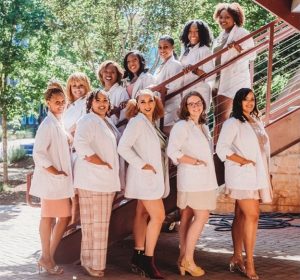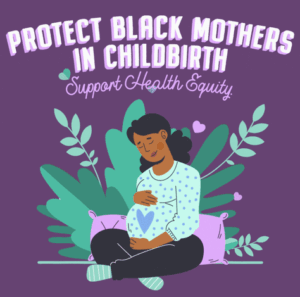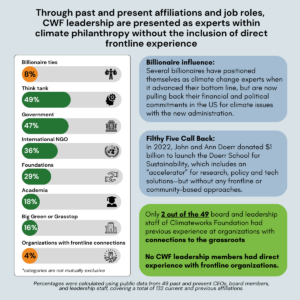Black Breastfeeding Week, created in 2013 by three Black breastfeeding advocates, is the only health campaign with an explicit national focus on making online and local impact on Black maternal and infant health through breastfeeding. Lactation and birth leaders celebrated the campaign’s 9th year with a slate of community events across the country.
This year’s theme, The Big Pause–Collective Rest for Collective Power, was an opportunity for advocates, organizations and their communities to support Black birthing people and families by honoring the power of rest in breastfeeding, maternal health, and social justice outcomes.
While work towards closing gaps in racial health disparities shouldn’t require justification, organizers are readily prepared to explain why the campaign is essential for the short-term and long-term health of Black families. What is harder to justify is the lack of diversity in the lactation field, particularly among International Board-Certified Lactation Consultants (IBCLCs).
IBCLC’s are healthcare professionals who specialize in the clinical management of breastfeeding/chestfeeding. IBCLCs can work in a wide variety of settings, providing leadership, advocacy, professional development, and research in the field of lactation.
However, it is believed that less than 2% of IBCLCs are Black or African-American.
As a response to these low numbers, Black lactation leaders are calling on the sector to move funding to the classrooms on the campuses of historically Black colleges and universities.
A good place to start would be in the South, where Greensboro’s North Carolina A&T State University (NCAT) and Charlotte’s Johnson C Smith University (JCSU) are the first two HBCUs in the United States to establish Pathway 2 lactation consultant training programs. Both share Black Breastfeeding Week’s mission of working to address the inequities faced by the Black community in maternal, child, and family health.
As Kimberly Seals Allers, one of the founders of Black Breastfeeding Week, states, “Can white certified lactation consultants help bridge the racial gap in breastfeeding rates? Perhaps, with a lot of cultural training. Could more African American consultants get us there much faster? Absolutely.”
Increasing Philanthropic support

Janiya Mitnaul Williams is the Program Director of the Pathway 2 Human Lactation Training Program at N.C. A&T SU. photo credit: Made In Greensboro
It’s hard not to see the huge impact that increased philanthropic support could have, especially as when I reflect on the number of families who look like me that I have had the privilege to assist and introduce to the first food that has been forgotten by so many in my community.
The current investment in the field is vulnerably small, at best. Between 2014-2018, philanthropy devoted $42 million for breastfeeding issues, with only 10.5% ($4.4 million) of that being explicitly designated for Black people. [1]. The majority of all the funding came from W.K Kellogg Foundation. Even for Black people, Kellogg is the biggest funder by a long shot, funding 95% of the breastfeeding-related work explicitly designated for Black parents.
If philanthropy contributed to lactation training programs at HBCUs, the number of Black IBCLCs would increase, not only diversifying the field, but also encourage more Black families to feed their infants with healthier, human milk instead of formula.
Addressing Longstanding Gaps in Care
Despite the many benefits of human milk for nursing parents and their babies, Black families continue to have the lowest breastfeeding initiation and duration rates (CDC, 2020). These statistics have remained constant for five decades.
These low rates are a combination of institutional and historical barriers that are so intertwined we seem to unveil a new obstacle each time researchers begin to unravel it. Many are aware of the history of wet nursing during slavery, the heavy targeting of Black families by formula companies in the late 90s until the early 2000s, and the lack of visible marketing of Black families nursing.
However, less known is the exploitation of human milk from Black lactating people by Medolac in 2015, that Black babies are 9 times more likely to be offered infant formula in hospital settings as opposed to white babies, and the history of the Fultz Quads born in the hospital system where I became the first Black International Board Certified Lactation Consultant (IBCLC) in 2005.
Recognizing and knowing first-hand about the roadblocks that make it difficult for individuals of color to enter the field of Lactation, I reached out to my alma mater at North Carolina Agricultural & Technical State University (NCA&T SU) in 2017 to establish a Pathway 2 program at a Historically Black College and University (HBCU). We collaborated with the Carolina Global Breastfeeding Institute at the University of North Carolina at Chapel Hill for a year of start-up funding and in 2021 we graduated our inaugural cohort of eleven students and NCA&T SU embedded the program at the university.

The inaugural cohort of Pathway 2 lactation consultants at NCA&T SU. photo credit Ciara Sherae Photography
Implementing a new program at a university during the COVID-19 pandemic speaks volumes about the impact this program has had on the community. Nonetheless, it is an additional expense, and we are aware of how the pandemic has impacted higher education, especially HBCUs.
Funding this program has been a constant hurdle each year since I began this rewarding venture. When looking at grantmaking for Black breastfeeding since 2004, an estimated $9.9 million has gone to predominantly white institutions while only $390,000 has gone to a historically Black colleges, which was only as recent as 2020. Even if there are Black students enrolled at these PWIs, it’s still important to directly fund Black-led programs at Black institutions.
Expanding Opportunities to Enter the Lactation Field
As previously stated, there are numerous barriers that must be addressed in order to become an IBCLC and many individuals, especially BIPOC folxs, do not have the opportunity to take the required courses and collect the contact hours needed to sit for the exam. Furthermore, without funding options, the out-of-pocket expenses are exuberant. These two programs are distinct from all other Pathway 2 programs because they were strategically placed at HBCUs in order to begin moving forward in the direction of creating true diversity within a field that has been homogenous since its origin.
Everything in our society impacts breastfeeding/chestfeeding and infant death rates are a direct reflection of the health and wellness of people in a community. Decades of research have shown that human milk promotes advantages in the areas of general health, growth, and development. It also significantly decreases the occurrence of acute and chronic diseases in newborns and increases bonding between a nursing parent and child. The lack of Black babies being breastfed should be classified as a current public health issue. Additionally, the long-term benefits associated with nursing have been proven to decrease the incidences of health issues that typically plague the Black community, asthma, childhood obesity, hypertension, diabetes, breast, uterine and ovarian cancers.
Philanthropies commitment to Black lives on the frontlines must include the work being held at the earliest stages of life. Birth justice through lactation is a bridge to achieving the social good that the sector seeks to invest in. That investment should start with ensuring that Black lactation consultants are leading frontline and direct service efforts to disrupt those disparities.
Janiya Mitnaul Williams is the Program Director of the Pathway 2 Human Lactation Training Program at N.C. A&T SU. She is also an International Board Certified Lactation Consultant, Registered Lactation Consultant, and Certified Lactation Counselor who has been supporting nursing families since 2007.
1.NCRP’s analysis of Candid data using a keyword search for “breastfeeding.”

































































































































































































































































































































































































































